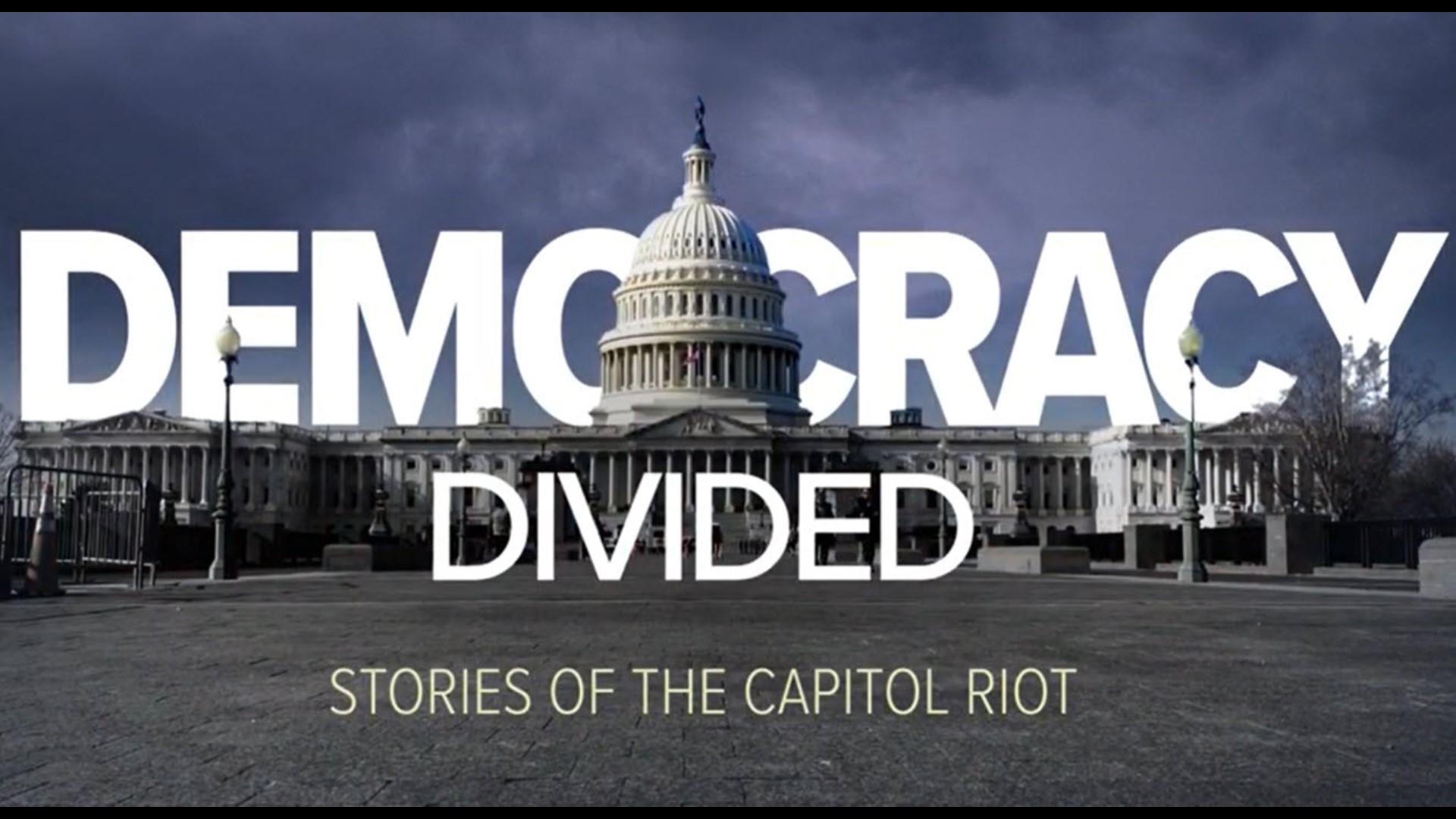WASHINGTON — A federal judge on Monday said former President Donald Trump and attorney John Eastman “more likely than not” attempted to obstruct the joint session of Congress last year when they devised a plan to pressure then-Vice President Mike Pence to overturn the election.
In a 44-page order, U.S. District Judge David O. Carter said the evidence showed Trump and Eastman, who authored the so-called “Eastman Memo” laying out a six-step plan for Pence to reject electoral votes from multiple states, launched a “campaign to overturn a democratic election.”
“Their campaign was not confined to the ivory tower,” Carter wrote. “It was a coup in search of a legal theory… If Dr. Eastman and President Trump’s plan had worked, it would have permanently ended the peaceful transition of power, undermining American democracy and the Constitution.”
Carter has been presiding over a lawsuit by Eastman attempting to block a subpoena from the January 6th Committee. On Monday, Carter ordered Eastman to turn over 101 emails between him and Trump or close associates, writing that the bulk of them were not protected by attorney-client privilege because they were written not in order to prepare for litigation, but for political purposes.
Carter drilled down on 11 documents in particular to examine whether they should be released under the crime-fraud exception, which, he wrote, applies when a “client consults an attorney for advice that will serve [them] in the commission of a fraud or crime” and those communications are made in furtherance of the crime. Carter said the evidence shows Trump more likely than not “corruptly attempted to obstruct the Joint Session of Congress” and that he and Eastman “dishonestly conspired” to do so.
“Dr. Eastman himself repeatedly recognized that his plan had no legal support,” Carter wrote. “In his discussion with the Vice President’s counsel, Dr. Eastman ‘acknowledged’ the ‘100 percent consistent historical practice since the time of the Founding’ that the Vice President did not have the authority to act as the memo proposed. More importantly, Dr. Eastman admitted more than once that ‘his proposal violate[d] several provisions of statutory law,’ including explicitly characterizing the plan as ‘one more relatively minor violation’ of the Electoral Count Act. In addition, on January 5, Dr. Eastman conceded that the Supreme Court would unanimously reject his plan for the Vice President to reject electoral votes.”
Carter said the evidence showed Trump and Eastman’s plan wasn’t limited to emails, but that they participated in “numerous overt acts” in furtherance of it. That included multiple attempts to strong-arm Pence into following the plan, culminating in Trump’s speech berating him on Jan. 6 in front of a crowd of thousands of people at the Ellipse. Eastman, who also spoke at the Ellipse on Jan. 6, knew what they were proposing was unconstitutional and driven purely by a desire to win the 2020 election.
“Dr. Eastman also understood the gravity of his plan for democracy – he acknowledged ‘[y]ou would just have the same party win continuously if [the] Vice President had the authority to just declare the winner of ever State,’” Carter wrote.
Carter ultimately found that 10 of the 111 documents targeted by the committee were privileged. The other 101 he ordered Eastman to hand over.
On Monday afternoon, the law firm of Burnham & Gorokhov, which is representing Eastman in his suit against the committee, released a statement saying he disagreed with Carter's order but intended to comply with it. It also downplayed Carter's findings of possible criminal activity.
"The court's crime/fraud findings were not subject to the presumption of innocence, proof beyond a reasonable doubt, or any of the constitutional protections normally applicable to criminal proceedings," the firm wrote. "As the district judge put it 'this is not a criminal prosecution; this is not even a civil liability suit.'"
The ruling is the latest evidence Trump could face criminal consequences for the assault on the U.S. Capitol Building last year. The January 6th Committee said earlier this month it has a good-faith basis for concluding the former president and members of his campaign engaged in a “criminal conspiracy to defraud the United States.” Trump and close associates, including his personal attorney Rudy Giuliani, are named in multiple civil suits brought by Democrats in Congress and police officers who were injured defending the Capitol on Jan. 6. To date, no one connected to the Trump campaign, including the former president himself, has been charged criminally in connection with the Capitol riot — although multiple Trump advisers have now been charged with contempt of Congress for defying the January 6th Committee's subpoenas. The committee was expected to vote Monday night on holding two more advisers, Peter Navarro and Dan Scavino, in contempt of Congress.
We're tracking all of the arrests, charges and investigations into the January 6 assault on the Capitol. Sign up for our Capitol Breach Newsletter here so that you never miss an update.

